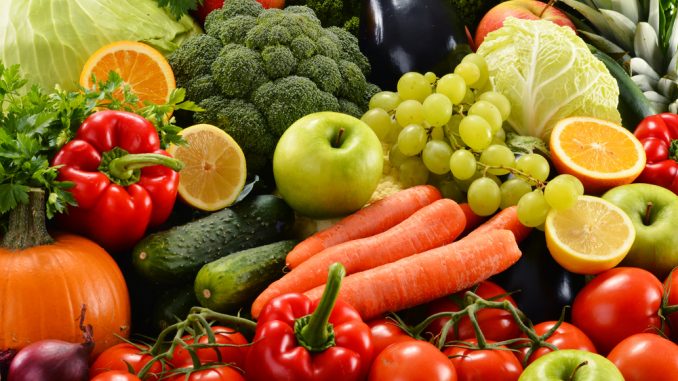
Fruits, vegetables, grains and legumes are low in fat and have no cholesterol. They are also good sources of complex carbohydrates, vitamins and dietary fiber. The American Heart Association suggests eating foods high in complex carbohydrates and fiber as some kinds of soluble fiber, such as pectin may reduce total cholesterol and LDL cholesterol when eaten in large amounts. Twenty-five-thirty grams of dietary fiber per day is suggested by The American Heart Association.
Suggestions for healthy eating
Avoid getting too many calories from coconut, olives and avocados as Coconut is high in saturated fat. Olives and avocados are high in monounsaturated fat and calories
After cooking vegetables, grains and legumes gains saturated fats or cholesterol.
- In some people too much of sodium or salt can lead to high blood pressure. Canned, processed and preserved vegetables also may contain added sodium. Look for the companies which offer food with either no salt added or with less salt. Fresh and frozen vegetables remain to be the best choice.
- Nuts and seeds don’t have cholesterol and are good sources of protein. Nuts like walnuts, almonds, pecans have polyunsaturated or monounsaturated fat. Varieties like macadamia nuts are high in saturated fat so look for the label before eating.
- Canola, corn, olive, safflower, sesame, soybean and sunflower oils are good to use in limited amounts for cooking or dressings as they are low in saturated fatty acids.
- Peanut oil can be used for flavoring but it has slightly more saturated fatty acids so don’t use it as cooking oil.
- Vegetable oils are hydrogenated so as to use in margarines or shortenings. Hydrogenation may partly offset few benefits of using polyunsaturated or monounsaturated vegetable oils.
Cholesterol, fiber and oat bran
Dietary fiber is the term used for several materials that make up the parts of plants that your body can’t digest. Fiber can be soluble or insoluble. Soluble fiber has been shown to help lower blood cholesterol, when regularly eaten as a part of a diet low in saturated fat and cholesterol. It reduces the risk of coronary heart disease. A high-fiber diet also helps in reducing the risk of rectal cancer and diabetes.
Some of good source of dietary fibers are Fruits, vegetables, whole-grain foods, beans and legumes.
You should read the labels on all packaged foods mainly oat bran and wheat bran products as some of these muffins, chips, waffles contain very little bran. They can also be high in sodium, total and saturated fat.
Adding fibers to your diet……. not a big deal
- Substituting high-fiber foods like whole-grain bread, brown rice, fruits and vegetables with low-fiber foods like white bread, white rice, candy and chips.
- Include more and more raw vegetables and fresh fruit, including the skins in your diet as cooking reduces their fiber content.
- Try to eat high fiber food in every meal. Bran cereal can be there in breakfast but some fruits, vegetables, whole-grains and beans are also recommended.
- You can take a dietary fiber if food is not enough.
- Drink at least 8 glass of water everyday.
- Increase your fiber intake gradually and give time to your body to adjust.
- Soluble fiber food Oatmeal, oat bran beans, peas, rice bran, barley, citrus fruits, strawberries and apple pulp.
- Insoluble fiber food Wheat breads, wheat cereals, wheat bran, cabbage, beets, carrots, Brussels sprouts, turnips, cauliflower and apple skin.
Look for foods with heart check marks on their label, they are ideal to be a part of healthy diet. So remember these tips always and forget YOUR OBESITY
